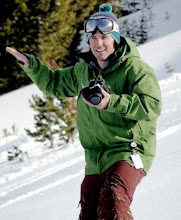Beginning on page 33, Yates argues the location of the capability of memory through the writings of Aristotle. Essentially, "Memory ... belongs to the same part of the soul as the imagination" (33) The foundational phenomenon of the human mind, memory, intertwines itself with the most foundational human thought, imagination, argues Aristotle as well as Yates. Because memory is basically a series of mental pictures it cannot exist without the capability to develop these pictures. The imagination is the "one-hour photo processing center" for the memory. It seems to reason the biologically hardwired tendency for children to "make believe" derives from the necessity to develop these two coexisting brain functions. Interestingly, as I write this blog, I am receiving a rush of memories from playing "make-believe" as a kid. I vividly remember being Rafael from the Ninja Turtles, and Luke Skywalker and Wedge Antillies from Star Wars. These memories come not from actual events that occurred in the "real" world but from a world I created in my imagination. Besides the first time I played with fire and my favorite childhood tree to climb, these memories of "make-believe" stick out more clearly than real world events like my first day of school. Children must play "make-believe" as a form of stimulation to hardwire the memory function into the brain, while at the same time, as Aristotle and Yates contend, they build the epicenter of memory and imagination ... the soul. This observation was only the beginning of the delightful nuggets hidden in Chapter 2. Aristotle was not the only one arriving at the Memory-Soul connection, Plato saw memory as the foundation to Rhetoric, the subject he emphasized his entire life
The Phaedrus is a treatise on rhetoric in which rhetoric is regarded, not as an art of
persuasion to be used for personal or political advantage, but as an art of speaking
the truth and of persuading hearers to the truth. The power to do this depends on a
knowledge of the soul and the soul's true knowledge consists in the recollection of the
Ideas. Memory is not a 'section' of this treatise, as one part of the art of rhetoric; memory in the Platonic sense is the groundwork of the whole.
(Yates, 37)
The ability to remember truth as one understands it, the ability to pull that truth from the depths of ones soul, acts as the primary purpose of Rhetoric. Plato believed that humans came pre-programed with knowledge however the trick became discovering the method to extract the knowledge from locked memories. The soul, it seems, is an intricate mold of understanding and learning. One must recreate the cast that created the mold and then continuously reproduce the mold. If the cast symbolizes memory, and the mold is imagination, then out of the critical relationship examined by Aristotle, combined with the Plato's Rhetoric, comes an emergent sculpture of "truth." To add a bit more wierd surounding this conceptualization of "truth," this "truth" is inherrant, hardwired into our systems from the moment of birth. Or perhaps from the "make-believe" we play as children an interesting thought.
The limits of imagination and memory using the Platonic and Aristotalian view become unfathomable. Now the memory feats supposedly performed by the scholars of the Middle Ages and the Reniassance become quite feasable. Why couldn't a person remember a sequence of thousands of places in an unfrequented church. The information is already internal waiting to be unlocked. "A power able to bring about such a number of important results is to my mind wholly devine. For what is the memory of things and words? What further is invention? Assuredly nothing can be apprehended even in God of greater value than this ... Therefore the soul is, as I say, divine, as Euripides dares say, God" (Yates quoting Cicero, 45).
While the ultimate power of memory may not rival the power of God. Memory certainly holds the key to unlocking an unbelievable power in man. Since I've been a kid, I've always heard a statistic that humans only use 10-15 percent of their brain. I don't know if that statistic is true or not but if it is, it definitely makes for some food for thought. What about the other 80%? I suppose I have stressed the 10-15% of my brain enough for a Friday afternoon and besides, I just finished my beer so I'm going to end there.












